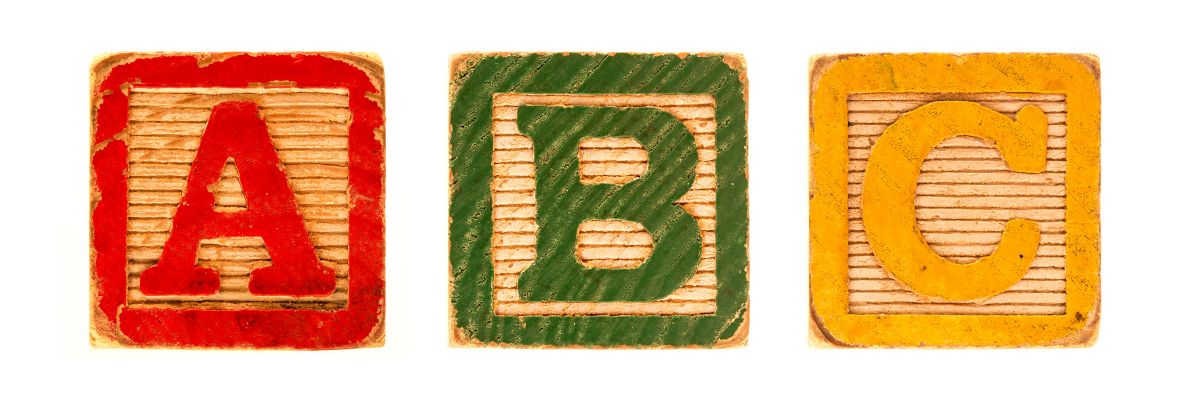It means your savings need to be organised before it happens
On 16th October 1987, the stock market in the UK fell 14%. By mid-November it was down 36%. It is for this reason you should keep reading.
By Barry Davys
This article is published on: 11th April 2024

It means your savings need to be organised before it happens
On 16th October 1987, the stock market in the UK fell 14%. By mid-November it was down 36%. It is for this reason you should keep reading.
The share price falls were across the board and good companies fell with the less successful. It was an arbitrary general fall in the FTSE 100 index. It seemed like a very risky time to be investing.
One of these falling shares was M & S. Yet to me it was ridiculous that M & S had been devalued by 36% when the business was in good shape and with prospects for ongoing growth.
I saw an opportunity to invest in the FTSE 100 index as I felt sure the better companies would be re-valued to reflect their sales and prospects. I knew that this was an opportunity to invest in my future, (not to try to make a quick buck).
Some of my clients also put part of their savings in the FTSE 100 index. Many did not. By August 1989 the index had recovered all of its lost ground. By 17th November 1997, it had gone up by 100% and is now 378% higher than it was in October 1987.
This is what I learned from those people who did not invest and which I now use to help people look after their savings. I now understand why those other people did not invest. The reason they didn’t is that I had not discussed, in detail, on a one to one basis, the following –
I arguably let those people down as their savings did less well than the people who did invest.
Having learned a lesson from the experience my clients now benefit from this insight.
It is important not to take too much risk, which I understand. But it is also important to take at least some risk, if your circumstances allow it.
It is important to avoid taking no risks. Indeed, I often hear people say “I want to be Cautious” or “It needs to be safe” and they have left money in the bank earning very little and certainly not keeping up with inflation.
If you think putting money in the bank is low risk, you could be right.
However, taking no risk/low risk can be the biggest risk of all and in the worst case an absolute certainty that your money will not keep up with inflation in the long term and you might not enjoy the retirement you had planned.
The risk of not keeping up with inflation, with not building up your savings, is you end up with a pot too small to provide a sustainable income in retirement. But with the right advice and the correct level of risk for you and your circumstances your sustainable income in retirement is much more likely.

Here are the things I consider when helping you judge the balance of risk versus the growth of your savings. A simple online questionnaire allows you to answer questionnaires to give you a suggested risk profile.
However, we do not leave it entirely to a computer to decide your future. I then discuss the suggested profile, answer your questions, double-check the suggested profile with you, and make any recommendations for improvement based on my 36 years of experience. A good blend of AI (artificial intelligence) and EI (experience intelligence).
What does this mean in practice and why trust me? Here is the outcome that clients get from the correct risk profile:
Here’s why you should trust yourself. Inflation will go up and down but the world’s demographic is changing. Fewer workers mean higher wages and lower state pensions. These things point to higher inflation in the future. Getting the risk balance right on your savings is not a “nice to do”, it is essential. You need to trust that, with the right support, you can improve the likelihood of healthy savings.

Do any of the following apply to your situation ?
If yes, arrange a call with me using my online system to book a time that is convenient for you.
It is an opportunity to get a better outcome from your savings, provide for your family, and help give yourself a sustainable income in retirement. Undoubtedly, you will be more relaxed too knowing that you have the right risk profile for your savings and that it is updated annually.
By Barry Davys
This article is published on: 20th July 2023

How you structure the sale of a business is always important. And never more so when you make an opportunity to move to Spain and then sell your business. Spain has a scheme to attract foreign workers, professionals and entrepreneurs with tax incentives.
This scheme can lead to 0% tax on the sale.
So unsurprisingly, moving to Spain is becoming an increasingly popular option.
Before inviting you to discuss the scheme, it is important to show how I help business people in this situation with their wealth planning. In addition to the 0% tax scheme there is greater depth to the planning. Will you live happily ever after? Well let’s see.
Selling a business is often a life changer. You have more time. You are not with the same people that you have been with for, in some cases, years. You suddenly have a large bank balance. And you spend time wondering what comes next in life?
I cannot help with the “what comes next?” question but I do help people get their affairs in good order so they can move forward.
My experience of working with people who have sold a business gives me insight into what things are important financially after a sale. Having sold a business myself I also have an understanding of the feelings that appear after the sale about the new found wealth.
The warm feeling that comes with looking at a new, very much bigger than normal, bank balance is great. It is a sense of achievement and reward for all the work you put into building your business and sacrifices you made along the way.
This feeling makes us focus on the figure on the bank statement. However, if we have sold at 55, with average life expectancy, we could live for another 30 years; longer if you are a woman. Life expectancy, as a result of medical advances, means we might well live even longer.
The secret to dealing with this bank balance focus is to check your answers to these questions:
These questions help us take the focus away from the big, juicy bank balance to the reality of providing an income for the next 30 years.
Question five may seem a strange question having just received a payment for the sale. It is actually an important one. The large bank balance typically tends to lead to big purchases; a car for husband and wife, a new house, helping or buying a house for children, a boat, gifts to other members of the family etc.

All these purchases and gifts have one thing in common. Not one of them produces an income!
Another common action is to invest in another business. I have seen time and time again, and I have been guilty of this myself, of investing in a company in a completely different sector, or perhaps B2C when your business was B2B. It can be a very expensive mistake to think “I know about business/marketing/retailing/manufacturing” etc and then investing in a different type of business.
What made our business successful was our ingrained experience of our sector and market, our knowledge of our suppliers and competitors and our customer needs. Moving to a different type of business for investment can render all that experience irrelevant. The assessment of the investment opportunity can be skewed by thinking we can rely on our experience.
So what should we do?
Secure your income first and then buy the toys, make further investments and make the gifts. But how do you do that when the future is unknown? By using some of the very best cash flow modelling software it is possible to show you. With inputs that are specific to you. With real data on portfolio performance including what happened during the financial crisis and the pandemic. Graphical output shows in real terms how to generate your income and what you could spend on other things.
For more information on how the modelling can work for you, book a call, in confidence, with the author Barry Davys, The Spectrum IFA Group, at a time that is convenient for you on his online system.
I often hear people who are selling say “and I am due a further sum of X in Y years”. It is considered as the ‘cherry on the top’ part of the deal even when it is contingent on hitting a future target. We can’t help but include it in our “How much am I worth?” calculations in our head, even though it is contingent on a target that we have no control over (loss of control is a function of selling the business).
The modelling helps with this issue too. A model with zero return from an earn out period in a contract allows you to plan with the resources you have available now. A second model is provided showing receipt of the further payment when it becomes clear the payment will be made. This second model can account for any and all of the following:
As we have been building the business we may have thought of pension contributions as a way of managing corporation tax, personal income tax or both. The pension pot itself is generally viewed as ensuring you have a comfortable retirement.
Now you have (or will have) a larger amount of wealth outside your pension it can be very beneficial to use this non pension wealth to provide your income in retirement. Firstly, it is possible in Spain to provide you with an income with a lower tax rate than applies to a pension. This gives you income that lasts longer into your retirement, allows you to have a better standard of living, or both!
Your pension pot then becomes one of the most effective IHT planning tools at your disposal and it is already under your control.
Inheritance tax in Spain is less about where you are living and more about your connection to the UK and also where your children live. Connection to the UK because even if we leave the UK a long time before death, we are generally considered to be “Domiciled” in the UK. Domiciled has a specific definition in the UK allowing HMRC to claim inheritance tax from an estate no matter where you die
Where you children live is important because they are the taxable entity, not your estate, for inheritance tax in Spain.
The importance of inheritance tax planning increases significantly after the sale of a business. It may be that you have previously qualified for family business exemptions on inheritance tax in both Spain and the UK. This was granted based on your shareholding in the company. Now the business has been sold, the exemption disappears.
Relatively simple planning can give outstanding results in reducing the amount of inheritance tax due in Spain.

Don’t forget the basics
Our feeling of abundance pushes the basics from our mind. However, there are a few basics that we should attend to post sale and which we will then not have to worry about again. This attention often means tax savings and reduction in expenditure.
Have you had life assurance provided by your business? Has that now disappeared? Do you still need life assurance if you now have a large capital sum? Do you have life cover taken out in your personal name?
When advising people on the post sale process these are the sorts of questions we address. In one recent post sale example my advice saved a husband and wife £400,000 EACH in potential inheritance tax.
Were either of these insurances paid for by your company? Do you need to replace or update an existing policy and especially so when you move to Spain?
Income protection insurance will pay you an income if you cannot work. However, with the loss of earnings as a result of the sale these types of policies become void. The good news is that by addressing the income issue first in your planning, you are already meeting the need for income. The policy is no longer needed and so there is a cost saving from not having to pay the insurance company a premium.
It is especially important that planning post a sale is broad enough to look at your overall situation and not be focussed just on the 0% tax or how to invest the sale proceeds. People have also found that continuing advice brings better outcomes for the family and ongoing piece of mind.
Of course, the 0% tax is very important and so I discuss this as part of the planning of the sale of your UK business in detail. To arrange a meeting or call please use this link to choose a time that is convenient for you to find out more about the 0% tax scheme and wealth management for you and your family.
However, perhaps you’re not interested in a holistic financial approach. If you believe investing is just about picking the right stocks or funds and have no interest in considering your complete financial picture – including tax strategies, estate planning, retirement goals, and risk management – I must admit, my comprehensive approach won’t be your cup of tea.”
Barry Davys MBA Dip PFS
Partner, Spectrum IFA Group
By Barry Davys
This article is published on: 19th July 2023

Travel broadens the mind, and the investment portfolio
Have you ever been to India for work or to travel?
I haven’t but my partner went for work and my daughter for travel. Some seven other friends have also travelled and all have reported the same way. It is a great place, still lots of improvements to be made, but the people work hard and are generally friendly.
With a current population estimated at 1.46 billion (now larger than China’s), India accounts for around 18% of the world’s total population.
If you were running a business with:
Would you be mildly optimistic about your outlook? Of course, you would have to deal with the day to day issues of logistics, marketing, financing etc but even so, you might still be mildly optimistic.
The story is only just beginning. Yours and my parts of this story come at the end of this article. Read on.
The IMF, World Bank and Goldman Sachs are all optimistic about the country’s outlook. India is currently the fifth largest country by size of economy. However, by 2050 Goldman estimates it will be the third largest in the world. Sounds good but when you examine the numbers it really is impressive.
In 2022 the Indian economy was valued at $3.385 trillion. Goldman expects the economy to be $22.2 trillion by 2050. By 2075 it is anticipated it will be $52.5 trillion, making it the second largest economy in the World.
To give some context, the economic output (GDP) of some other countries in 2075 are estimated to be:

Your involvement in the story
Sounds good but what has this got to do with me?
If you are selling or have sold your business at, as an example, age 60, it is likely that you will live around 30 years. This change in India to 2050 will take place in your lifetime.
If you have children, and especially with grandchildren, this change in India to 2075 will take place in their lifetimes.
I am not an investment manager but am able to arrange for discretionary fund managers (DFMs) to run investment portfolios on behalf of my clients. I direct the DFM to invest in a manner that fits both with your attitude to risk and your longer-term planning objectives. This includes requirements for income and inheritance tax planning for your family.
I am forward looking. This story of India is not a recommendation to invest in India. It does illustrate however that if this economic expansion is expected to develop over your lifetime, we could ask the DFM to consider including at least some Indian exposure in your portfolio.
If you wish to look to the future, book an appointment for an initial call with Barry Davys at a time that is convenient for you, using his online system at Selling your Business